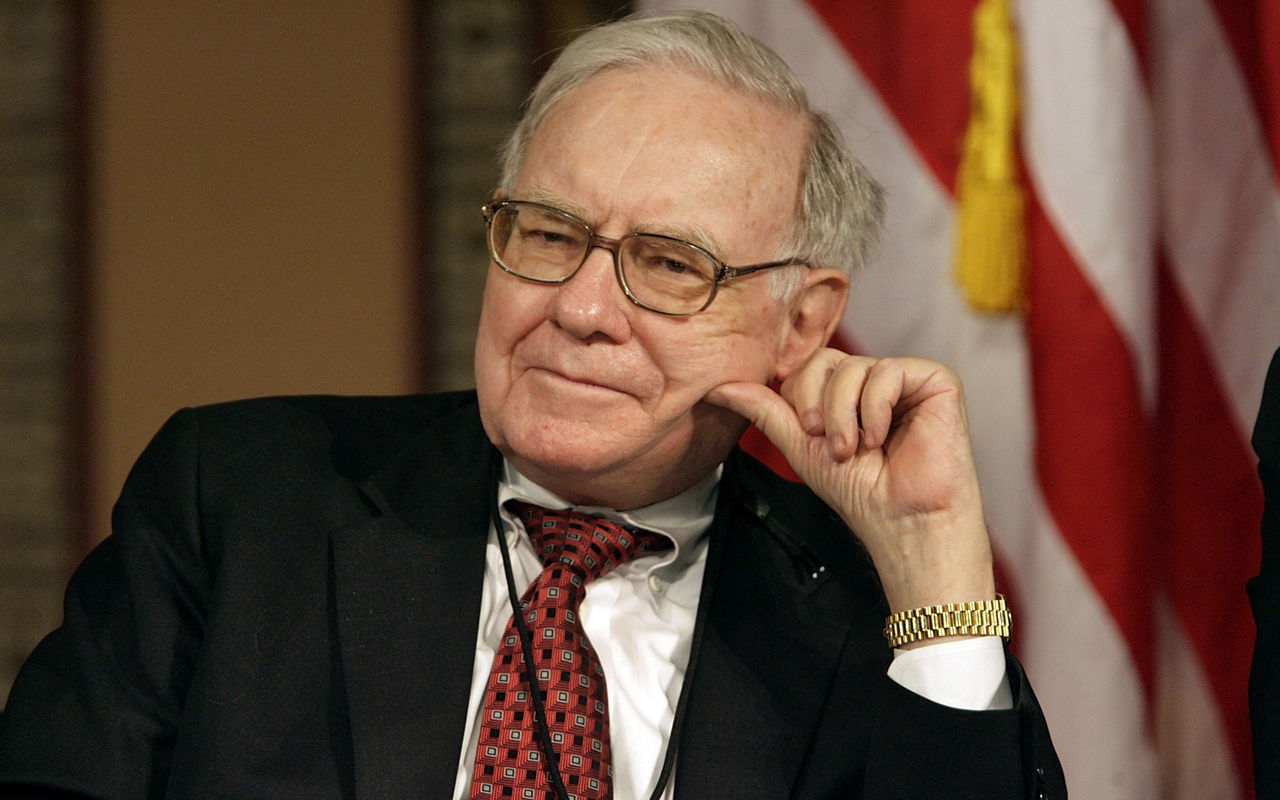Is Momentum Investing Dead?
Investors of momentum funds have gathered mediocre results over the past decade. But some fund companies are still drawn to the strategy.

Profit and prosper with the best of Kiplinger's advice on investing, taxes, retirement, personal finance and much more. Delivered daily. Enter your email in the box and click Sign Me Up.
You are now subscribed
Your newsletter sign-up was successful
Want to add more newsletters?

Delivered daily
Kiplinger Today
Profit and prosper with the best of Kiplinger's advice on investing, taxes, retirement, personal finance and much more delivered daily. Smart money moves start here.

Sent five days a week
Kiplinger A Step Ahead
Get practical help to make better financial decisions in your everyday life, from spending to savings on top deals.

Delivered daily
Kiplinger Closing Bell
Get today's biggest financial and investing headlines delivered to your inbox every day the U.S. stock market is open.

Sent twice a week
Kiplinger Adviser Intel
Financial pros across the country share best practices and fresh tactics to preserve and grow your wealth.

Delivered weekly
Kiplinger Tax Tips
Trim your federal and state tax bills with practical tax-planning and tax-cutting strategies.

Sent twice a week
Kiplinger Retirement Tips
Your twice-a-week guide to planning and enjoying a financially secure and richly rewarding retirement

Sent bimonthly.
Kiplinger Adviser Angle
Insights for advisers, wealth managers and other financial professionals.

Sent twice a week
Kiplinger Investing Weekly
Your twice-a-week roundup of promising stocks, funds, companies and industries you should consider, ones you should avoid, and why.

Sent weekly for six weeks
Kiplinger Invest for Retirement
Your step-by-step six-part series on how to invest for retirement, from devising a successful strategy to exactly which investments to choose.
Recently my Morningstar colleagues and I met to discuss the question, "Is momentum investing dead?" After all, the practice has been essentially moribund since 1999. A momentum fund is one whose manager invests in companies with fast-rising earnings, strong share-price performance or both in hopes that all the good news about the stocks is not yet reflected in their prices. The idea is to buy high and sell higher.Most momentum funds delivered mediocre results over the past decade. Consider these ten-year numbers for some prominent funds (results are through October 8): American Century Ultra (symbol TWCUX) lost 2.4% annualized, Turner Midcap Growth (TMGFX) also lost 2.4% a year, and Brandywine (BRWIX) lost 1.0% a year.
An Excuse
Momentum managers do have a plausible defense for their performance. The kinds of stocks they tend to invest in hit absurdly high prices at the end of 1999, mainly because of the Internet craze. That all but guaranteed that the stocks would have trouble for some time in the new century.
But the contrarian in me sees the dismal record of momentum investing as reason to dive in. The technique does find support in academic research. The most-successful strategy: Stocks that do better than the market over the previous 12 months, excluding the most-recent month, are likely to continue to outperform.
From just $107.88 $24.99 for Kiplinger Personal Finance
Become a smarter, better informed investor. Subscribe from just $107.88 $24.99, plus get up to 4 Special Issues

Sign up for Kiplinger’s Free Newsletters
Profit and prosper with the best of expert advice on investing, taxes, retirement, personal finance and more - straight to your e-mail.
Profit and prosper with the best of expert advice - straight to your e-mail.
When momentum works, it does so because investors don't immediately grasp all the reasons a stock is gathering steam. For example, when Apple introduced the iPhone, the early line was, "nice product extension of the iPod," not "monster new category." So even after Apple first started reporting big quarterly profits from the iPhone, you still had time to make money from the stock because future earnings reports would turn out even better. Other momentum angles are to buy shares of companies that repeatedly beat analysts' quarterly estimates and to conduct basic analysis designed to ferret out companies that are likely to top estimates when they issue their next report.
What's striking is that few momentum funds did as well as more-traditional growth funds, such as Jensen Portfolio and Amana Growth, which essentially look for solid companies that can generate good, long-term earnings gains. These funds were also handicapped by having to fish in waters filled with high-priced stocks at the start of 2000. That makes me wonder whether momentum investing simply isn't a sustainable strategy anymore. Maybe information spreads so rapidly now that any new product or other breakthrough is priced into a stock almost instantaneously.
Yet some fund companies keep trying to cash in on Big Mo. AQR is the most notable example. Its founder, Cliff Asness, published some of the earliest research in support of momentum. In July 2009, Asness launched AQR Momentum (AMOMX), AQR Small Cap Momentum (ASMOX) and AQR International Momentum (AIMOX). Each picks stocks by ranking their performance over the previous 12 months, excluding the past month. Over the past year, the funds returned 17.4%, 15.2% and 9.3%, respectively, with each beating its benchmark. AQR Momentum charges 0.49% a year; the other two 0.65% a year.
An alternative would be to buy one of the myriad of growth-style index funds or exchange-traded funds and pay expenses of 0.20% to 0.30%. A decent chunk of each fund would be in momentum stocks.
My suggestion: Plug 10% of your stock-fund holdings into AQR's momentum funds or a growth-style index fund or two. You'll have exposure when momentum investing finally gets around to its next extended rally. For the rest of your portfolio, stay with active managers who have good fundamental approaches and a long-term focus.
Columnist Russel Kinnel is director of mutual fund research for Morningstar and editor of its monthly Fundinvestor newsletter.
Profit and prosper with the best of Kiplinger's advice on investing, taxes, retirement, personal finance and much more. Delivered daily. Enter your email in the box and click Sign Me Up.

-
 Dow Leads in Mixed Session on Amgen Earnings: Stock Market Today
Dow Leads in Mixed Session on Amgen Earnings: Stock Market TodayThe rest of Wall Street struggled, though, as Advanced Micro Devices earnings caused a chip-stock sell-off.
-
 How to Watch the 2026 Winter Olympics Without Overpaying
How to Watch the 2026 Winter Olympics Without OverpayingHere’s how to stream the 2026 Winter Olympics live, including low-cost viewing options, Peacock access and ways to catch your favorite athletes and events from anywhere.
-
 Here’s How to Stream the Super Bowl for Less
Here’s How to Stream the Super Bowl for LessWe'll show you the least expensive ways to stream football's biggest event.
-
 How I'm Going to Invest My Mega Millions Lottery Jackpot
How I'm Going to Invest My Mega Millions Lottery JackpotThe odds of winning the Mega Millions lottery are effectively zero, but here's how I'm investing my fortune should I hit the jackpot.
-
 Four Random Facts and Thoughts About Warren Buffett
Four Random Facts and Thoughts About Warren BuffettIf I love Warren Buffett so much why don't I just marry him?
-
 Investing in Gold Is Dumb
Investing in Gold Is DumbStocks are better than gold for both generating wealth and offering protection against inflation.
-
 What's So Scary About a Mega-Cap Tech Bull Market?
What's So Scary About a Mega-Cap Tech Bull Market?Bears say the market can't keep rallying when only five mega-cap tech stocks are driving returns, but history suggests otherwise.
-
 We Are Not in a Bull Market
We Are Not in a Bull MarketIt takes more than a 20% gain off the low to proclaim the beginning of a new bull market.
-
 Why I Don't Buy Stocks
Why I Don't Buy StocksIt's nearly impossible to beat the market – but it is cheap and easy to match it.
-
 Amy Domini on the Secrets of Sustainable Investing
Amy Domini on the Secrets of Sustainable InvestingESG An ESG pioneer says finding good corporate citizens is the best way to make money.
-
 Bitcoin Halving: What Does It Mean for Investors?
Bitcoin Halving: What Does It Mean for Investors?Technology 'Mining' for this cryptocurrency just became a lot more expensive